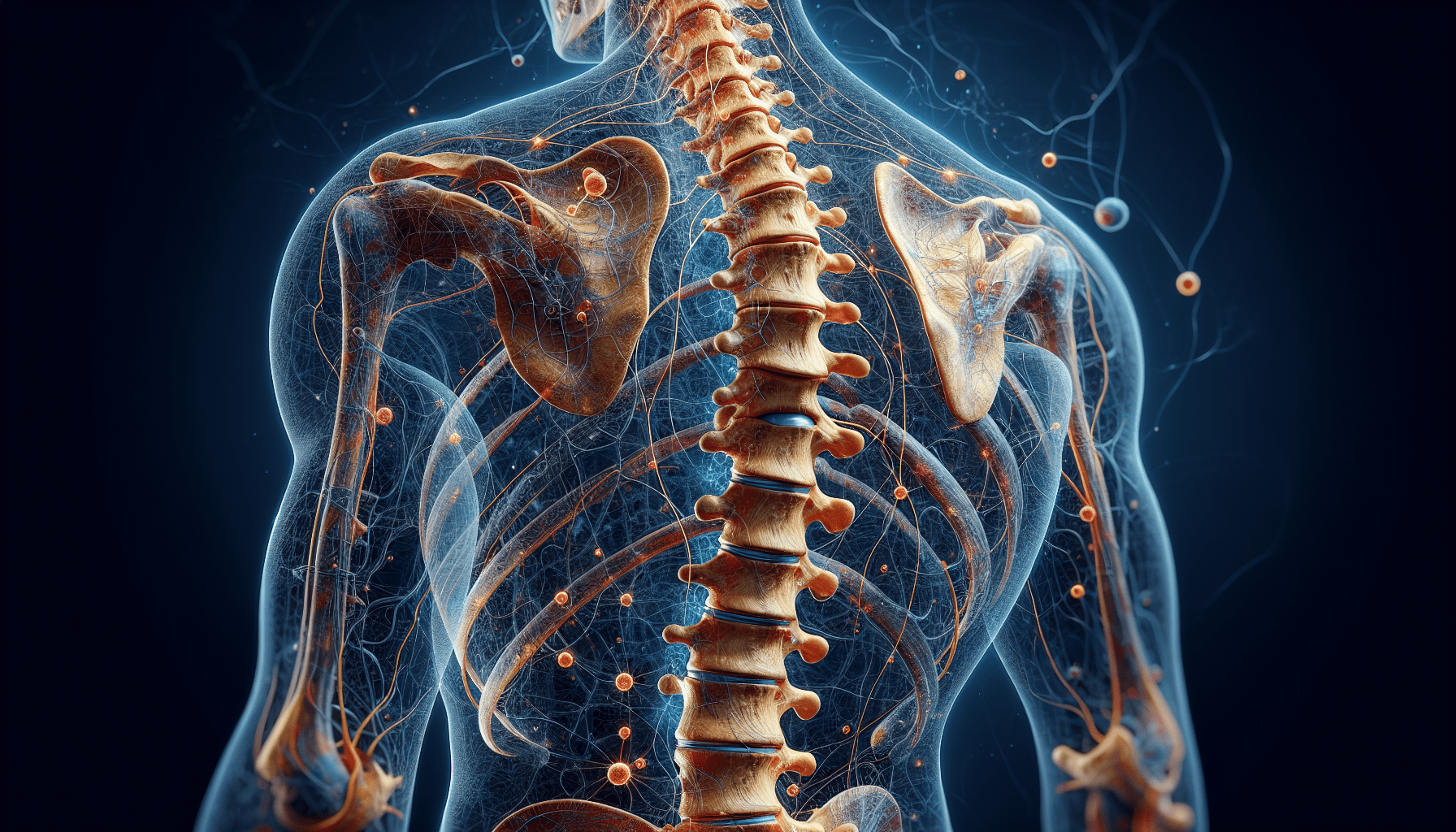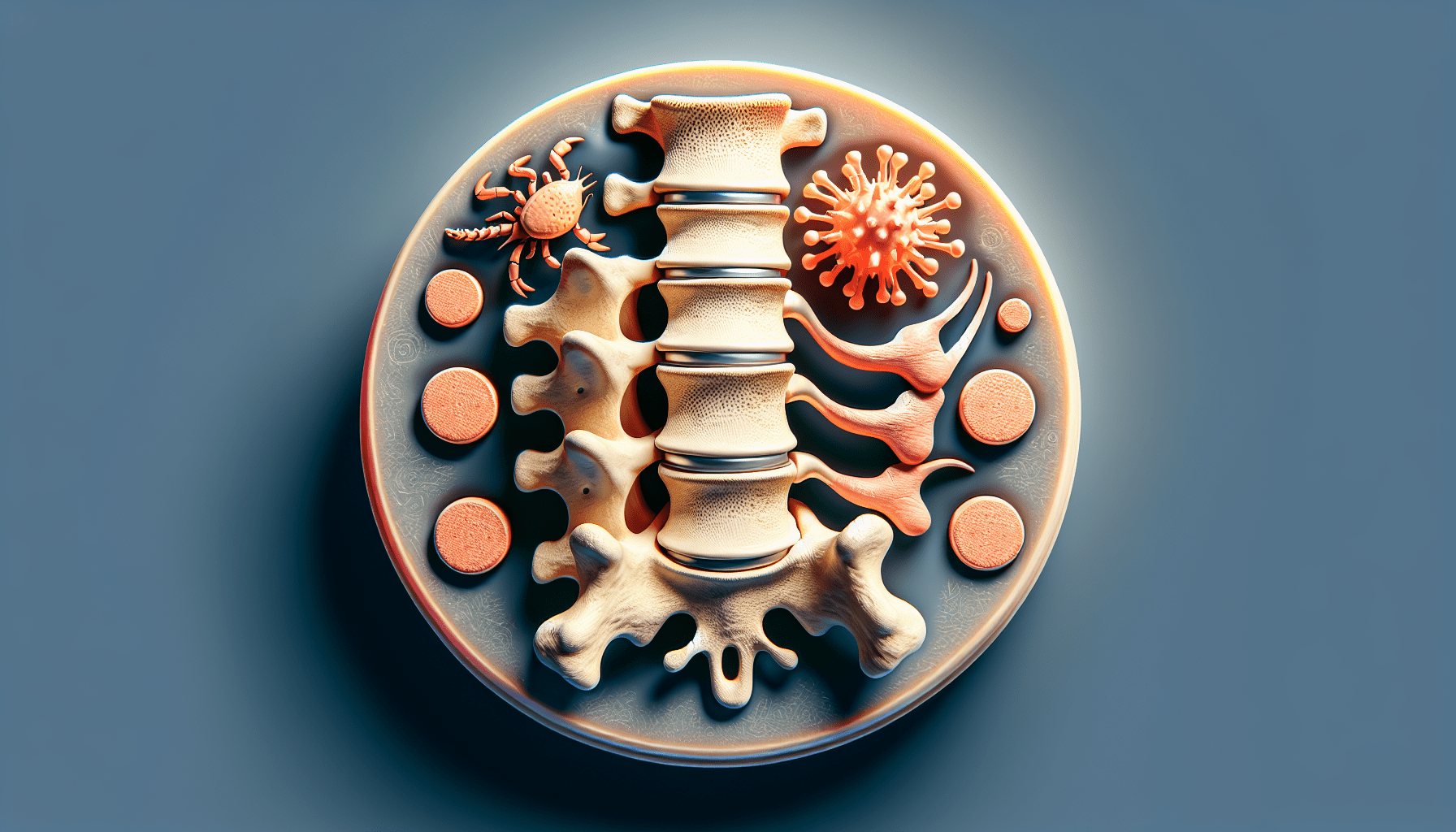Welcome, dear reader, to an insightful article uncovering the intriguing relationship between disc protrusion and autoimmune diseases. In this article, we will explore how the inflammation and immune responses related to autoimmune diseases can impact the development and progression of disc protrusion in the spine. Join us as we delve into this fascinating connection and learn how it may potentially revolutionize treatment approaches for both conditions. Hey there! Have you ever wondered about the connection between disc protrusion and autoimmune diseases? In this article, we’ll delve into this interesting topic and explore how these two seemingly separate health conditions may be linked. So, grab a cup of tea, get comfy, and let’s get started on unraveling this intriguing mystery together.

Understanding Disc Protrusion
Let’s start by understanding what disc protrusion actually is. Disc protrusion, also known as a bulging disc, occurs when the soft inner core of a spinal disc pushes through the tough outer layer. This can result in symptoms such as back pain, numbness, weakness, and tingling sensations.
Have you ever experienced any of these symptoms? If so, you may have had a firsthand encounter with disc protrusion. It’s a common condition that many people deal with at some point in their lives.
The Basics of Autoimmune Diseases
Now, let’s shift gears and talk about autoimmune diseases. These are a group of conditions in which the immune system mistakenly attacks the body’s own tissues, causing inflammation and damage. Examples of autoimmune diseases include rheumatoid arthritis, lupus, and multiple sclerosis.
Autoimmune diseases can affect virtually any part of the body, from the joints to the skin to the organs. They can cause a wide range of symptoms, depending on which part of the body is being targeted by the immune system.
So, What’s the Connection?
You might be wondering at this point how disc protrusion and autoimmune diseases are related. Well, recent research suggests that there may be a connection between the two. Some studies have found that individuals with autoimmune diseases may be at a higher risk of developing disc protrusion, and vice versa.
One possible explanation for this link is inflammation. Both disc protrusion and autoimmune diseases involve inflammation in the body. In the case of disc protrusion, the inflammation is localized to the spinal discs, while in autoimmune diseases, it can affect various tissues throughout the body.
The Role of Genetics
Genetics may also play a role in the connection between disc protrusion and autoimmune diseases. Some studies have shown that certain genetic factors may predispose individuals to both conditions. For example, a gene that influences the immune system’s response to inflammation could contribute to the development of both disc protrusion and autoimmune diseases.
If you have a family history of either disc protrusion or autoimmune diseases, you may be at a higher risk of developing one or both of these conditions yourself. It’s always a good idea to be aware of your family’s health history and discuss any concerns with your healthcare provider.
Treatment Approaches
Now that we’ve explored the possible connection between disc protrusion and autoimmune diseases, let’s talk about treatment approaches for these conditions. Managing both disc protrusion and autoimmune diseases can be challenging, but there are several strategies that can help alleviate symptoms and improve quality of life.
Conventional Treatments
For disc protrusion, conventional treatments often focus on pain management and promoting healing of the affected discs. These may include medications, physical therapy, and in some cases, surgery. It’s important to work with your healthcare team to determine the best treatment plan for your specific situation.
When it comes to autoimmune diseases, treatment typically involves medications to suppress the immune system’s abnormal response. Corticosteroids, disease-modifying antirheumatic drugs (DMARDs), and biologic agents are commonly used to manage symptoms and prevent further damage to tissues.
Lifestyle Modifications
In addition to conventional treatments, lifestyle modifications can play a key role in managing both disc protrusion and autoimmune diseases. Maintaining a healthy weight, exercising regularly, and practicing good posture can help reduce strain on the spine and joints, while also promoting overall health and well-being.
Dietary changes may also be beneficial for individuals with autoimmune diseases. Some research suggests that certain foods, such as those high in omega-3 fatty acids and antioxidants, may help reduce inflammation and improve symptoms. Consulting with a registered dietitian or healthcare provider can help you develop a nutrition plan that supports your health goals.
Alternative Therapies
In recent years, alternative therapies have gained popularity as complementary approaches to conventional treatments for disc protrusion and autoimmune diseases. These may include acupuncture, chiropractic care, massage therapy, and herbal supplements.
While alternative therapies can be helpful for some individuals, it’s important to approach them with caution and discuss them with your healthcare provider. Not all alternative therapies are backed by solid scientific evidence, so it’s essential to be informed and make choices that are safe and effective for your unique needs.
Conclusion
Congratulations on making it to the end of this article! We’ve covered a lot of ground in exploring the connection between disc protrusion and autoimmune diseases. While more research is needed to fully understand the relationship between these two conditions, it’s clear that there may be some common factors at play.
If you’re dealing with disc protrusion or an autoimmune disease, remember that you’re not alone. There are many treatment options available to help manage symptoms and improve your quality of life. By working closely with your healthcare team and taking proactive steps to care for your health, you can take control of your well-being and thrive in spite of any challenges you may face.
Thanks for joining me on this journey of discovery. I hope you found this article informative and helpful. Take care, and be well!

